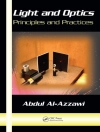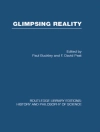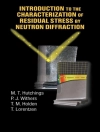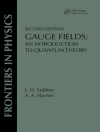A groundbreaking textbook on twenty-first-century waves of all sorts and their applications
Kip Thorne and Roger Blandford’s monumental Modern Classical Physics is now available in five stand-alone volumes that make ideal textbooks for individual graduate or advanced undergraduate courses on statistical physics; optics; elasticity and fluid dynamics; plasma physics; and relativity and cosmology. Each volume teaches the fundamental concepts, emphasizes modern, real-world applications, and gives students a physical and intuitive understanding of the subject.
Optics is an essential introduction to a resurgent subject. “Optics” originally referred to the study of light, but today the field encompasses all types of waves, including electromagnetic waves, from gamma rays to radio waves; gravitational waves; waves in solids, fluids, and plasmas; and quantum waves. The past few decades have seen revolutions in optics—amazing advances in nonlinear optics technology, a growing understanding of optical phenomena throughout the natural world, and an increasing appreciation of the wide-ranging applicability of optics’ central principles. Optics shows how and why this subject—which was once a standard part of physics curricula—should again be routinely taught to physics students, as well as to students in engineering, computer science, and the natural sciences.
- Includes many exercise problems
- Features color figures, suggestions for further reading, extensive cross-references, and a detailed index
- Optional “Track 2” sections make this an ideal book for a one-quarter, half-semester, or full-semester course
- An online illustration package is available to professors
The five volumes, which are available individually as paperbacks and ebooks, are Statistical Physics; Optics; Elasticity and Fluid Dynamics; Plasma Physics; and Relativity and Cosmology.
Sobre o autor
Kip S. Thorne, winner of the Nobel Prize in physics, is the Feynman Professor Emeritus of Theoretical Physics at Caltech. His books include
Gravitation (Princeton) and
Black Holes and Time Warps: Einstein’s Outrageous Legacy.
Roger D. Blandford, winner of the Crafoord and Shaw prizes in astronomy, is the Luke Blossom Professor in the School of Humanities and Sciences and founding director of the Kavli Institute for Particle Astrophysics and Cosmology at Stanford University.












